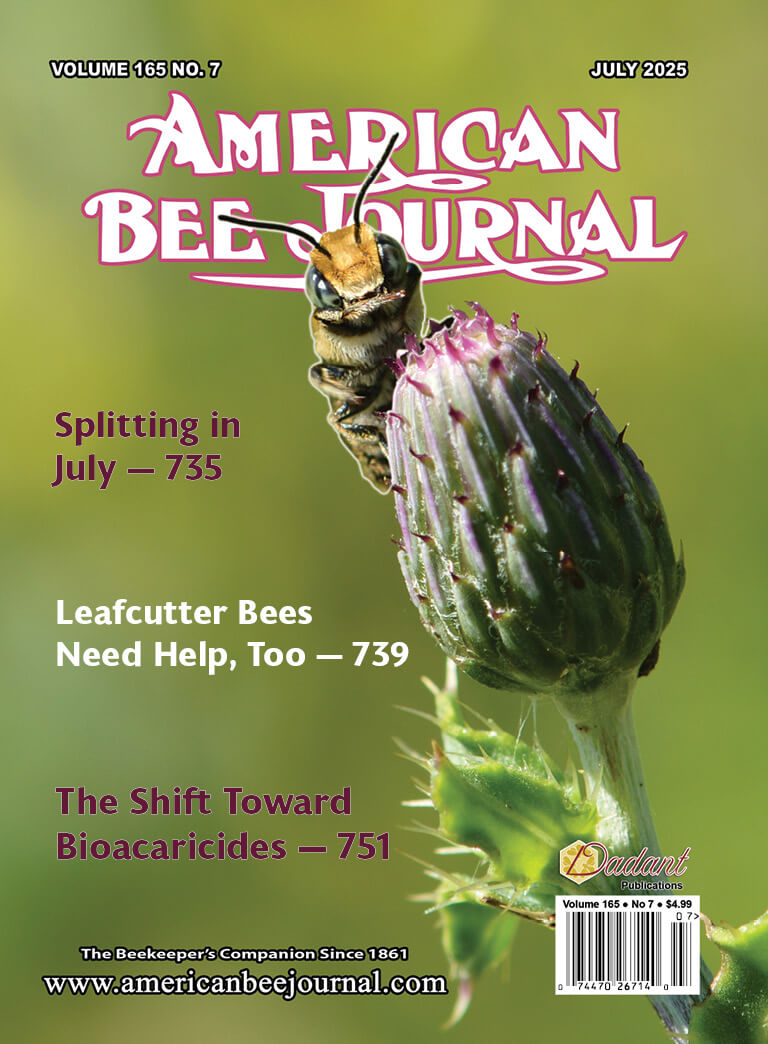
Q Toughest Job
I am curious on your thoughts on this article. The Bee Apocalypse Was Never Real; Here’s Why: https://www.acsh.org/news/2018/04/17/bee-apocalypse-was-never-real-heres-why-12851
Thank you,Randy McElroy
A
Beekeepers in a commercial setting have been ignored for years and have been characterized as the ugly step sisters of agriculture. Passionate beekeepers, i.e. those who have had a desire to learn and not reinvent the wheel on honey bee management, have learned by trying and failing and trying again how to keep their businesses alive. They have done amazingly, but they are always at the tipping point of maintaining honey bee vitality. They need colonies to survive as that is what they can rent or sell to growers and others to make a living and pay the bills. They are very smart and adaptable within limits.
They adjusted to this thing inappropriately named CCD, because they could use honey bee biology to figure out how to mostly—but unfortunately not consistently—keep ahead of varroa. They live by the motto split and divide and split and divide some more as a method of insurance, knowing they will lose about 30% of their colonies per year. There are more honey bee colonies in the US now than any time in prior years, because of this technique of making extra colonies knowing you will lose some. It doesn’t mean there are not continuing unresolved honey bee health issues; it just means the beekeepers understood and used honey bee biology to make and build a better buffer by investing in extra colonies as insurance.
I don’t think anyone in any other segment of production agriculture has these challenges. Can you imagine if corn growers were losing 30% of their corn plants every year?
Q Expired Product
Thank you for all your help you have given me in the past. I really appreciate your candor and expertise.
Hypothetical question: If you were given an unopened box of expired varroa control product (Dec, 2017) would you use it?
I would use it myself, but have never used this product before. I have used Hop Guard and Oxalic acid. But hate to throw it away, if it could help me. I do know what the label says. Just thinking out loud. I can understand if you do not want to address this. Thank for your help.
Terry
A
Glad I was able to help you in the past. I do not chose to not address much. Let’s give it another try :)
I think that in all respects the ‘label is the law’. And the label gives a date when the product may not meet label specifications.
The product has been tested for safety and efficacy in a robust regulatory process. Shelf life has been tested, so that the product matches the stated safety and performance expectation of the regulatory agency and the ultimate user. But, that is all out the window now, because the product was tested when the active ingredient was fresh and new. And now it is not.
All of us beekeepers are cheap, penny pinchers. I know this will be hard, but throw it away. You don’t know if it will help your bees or hurt your bees or do nothing. A replacement nuc, package or queen will cost more dollars than throwing this ‘expired’ stuff out.
Q Blueberry EFB
For the last couple of years I’m having some hives break out in European Foulbrood only in blueberries. Same load of bees from another state that overwintered here went to some pollination 3 miles away of a much different crop and they didn’t get it. Got to be something with a fungicide or for frost protection they run water a lot and the humidity is so high the hives come down with it. Thoughts?
Chris
A
Back in the day I worked in Michigan as blueberry production ramped up there. Colonies would always come down with EFB. At that time I was told by apiculture specialist at Michigan State University that it was a pH issue with the nectar that was transferred and fed to post 3 day larvae. As the main dominant nectar source in this concentrated berry production, the pH of blueberry nectar threw the general pH of the larval food off, allowing EFB organism (Melissococcus pluton) to get a foot hold advantage. It came and went with blueberry pollination and beekeepers were concerned, but it always resolved itself after the fact, so nobody panicked.
Q Mold
Hi Jerry,
Two of my hives winter killed and I plan to replace them with package bees in two weeks. The foundations have a light film of mold on them and there is a little dead capped brood. Will the new bees clean this mess or should I toss the frames and start new?
Mac in Maine
A
If you are sure that there was no AFB disease issues with the colonies’ demise, I think they will be fine. New bees will clean up superficial stuff like molds and other icky looking stuff quickly and easily. Colonies dying…..Remember the three words to memorize: varroa, varroa, varroa! Google up Tools for Varroa Management from the Honey Bee Health Coalition for 90% success keeping colonies alive.
Q Clogging Brood Nest
Hey Jerry,
Any suggestions as to how to limit the amount of honey in the brood nest during the flow? Same for pollen.
As always, Thanks for your comments. They are much appreciated.
Rob
Tallahassee
A
All comb space in a colony nest at this time of the year is designed for raising replacement and additional colony workers along with the small food resources to support that biological necessity. Our European genetically based bees are ‘always’ preparing for the next winter. As such, storing a significant amount of surplus nectar is based on lots of foragers and available comb space. If there isn’t sufficient comb space available in supers and there is sufficient unused comb space in the brood nest, then it is waaaay easier to dump the nectar off in the open cells in the brood nest comb.
Honey bound brood nests are a real thing. But, many times it happens because …


